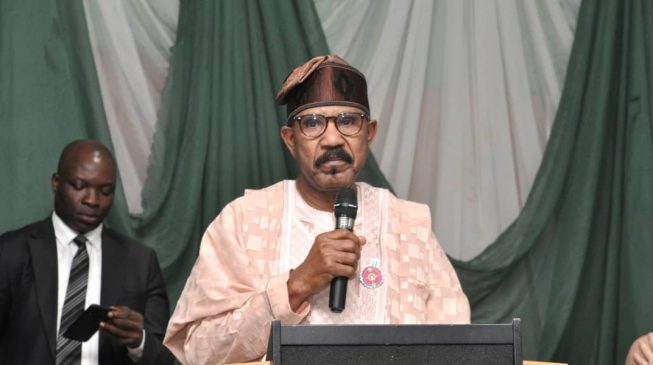By Iyema David
The Minister of State for Health, Dr Adeleke Mamora, has pleaded with the National Agency for Food, Drugs Administration and Control, (NAFDAC), to slash product listing cost for traditional medicines in view to improving access to Universal Health Coverages (UHC), in Nigeria.
Mamora made the plea during a visit mission by the World Health Organisation (WHO), to Nigeria to monitor the clinical trials on herbal medicines proposed for the treatment of COVID-19, on Monday in Abuja.
According to reports, NAFDAC has also taken steps to protect the health of consumers by drafting the ‘Guidelines for the Registration and Control of Herbal Medicinal Products and Related Substances in Nigeria.
Three broad classes are defined in the Guidelines, and preparations will be considered under four categories, each of which has its protocol. Extemporaneous preparations are only to be listed and not registered or advertised.
Post-listing evaluation/monitoring is, however, mandatory. Herbal medicinal products manufactured on a large scale, whether imported or locally manufactured, must be registered and their advertisement messages and scripts approved by NAFDAC prior to their marketing.
Homeopathic medicinal products must be registered and their advertisement messages approved prior to marketing. Post-registration evaluation/monitoring is also mandatory for both large-scale herbal medicinal products and homeopathic products.
He said that the tasked assigned to the National Institute for Pharmaceutical Research and Development (NIPR) and NAFDAC, was to scale up their activities towards the search for a local solution to the pandemic and other diseases.
The Minister said the reduction of the charges would encourage operators of Micro Small and Medium Enterprises (MSMEs), to list their products to make easy for the MSMEs during the listing process and encourage clinic trails as well.
He also disclosed that FMoH had inaugurated an expert committee as a protocol of evaluation of herbal medicinal products as a way of promoting research and a database of traditional medicine practitioners had been developed for ease of collaboration, research and promotion of traditional medicine in the country.
“The federal government is also working on a traditional medicine policy and a committee to set up a traditional medicine institute which was triggered by the COVID-19 pandemic,” he explained.
Mamora also called on the African region to come up with several approach for promoting collaboration with view to improving access to UHC in the region.
He noted that strengthening collaboration between practitioners of Conventional and Traditional Medicine was crucial for the integration of traditional medicine into regional health systems.
“For this purpose, the region should have a critical role to play for the scientific validation of the products and practices of traditional medicine,” he explained.
Earlier the team lead of WHO, Prof. Joseph Okeibunor, Regional Immunization Social Scientist with the World Health Organization Regional Office for Africa,
said that the mission where in Nigeria to monitor the clinical trials on herbal medicines proposed for the treatment of COVID-19.
Okeibunor reiterated WHO continuous support to the the Government of Nigeria in its goal of achieving self-sufficiency in the local production of traditional medicine.
Emphasising the importance of African Traditional Medicine in the development of the health sector, he said that Africa have a long history of traditional medicines and practitioners that play an important role in providing care to populations over centuries.




